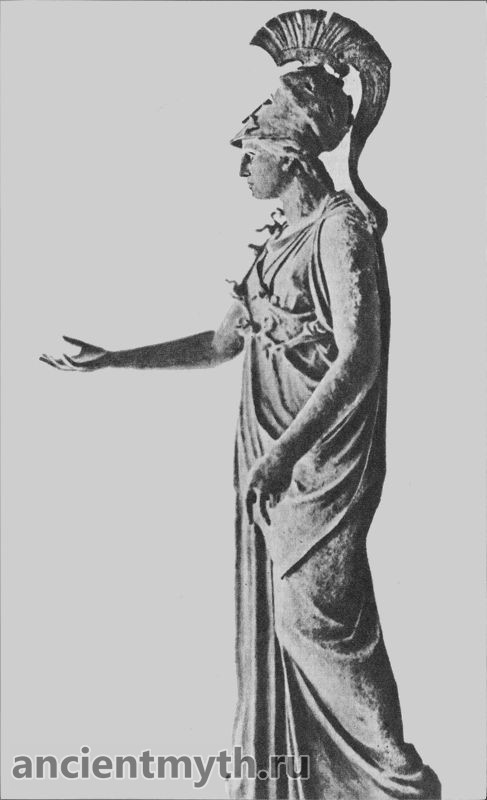Arachne
For the whole Lydia was famous Arachne with her art. Nymphs often gathered from the slopes of Tmol and from the shores of the gold-bearing Pactolus to admire her work. Arachne spun from threads like mist, fabrics as transparent as air. She was proud that she had no equal in the world in the art of weaving. One day she exclaimed:

- Let Pallas Athena herself come to compete with me! She can't beat me; I'm not afraid of that.
And so, under the guise of a gray-haired, hunched old woman leaning on a staff, the goddess Athena appeared before Arachne and said to her:
- Not one evil brings with it, Arachne, old age: years bring with them experience. Take my advice: strive to surpass only mortals with your art. Don't challenge the goddess to a contest. Humbly beg her to forgive you for your arrogant words, the goddess forgives those who pray.
Arachne let go of the fine yarn; her eyes flashed with anger. Confident in her art, she answered boldly:
- You are unreasonable, old woman, Old age has deprived you of reason. Read such instructions to your daughters-in-law and daughters, but leave me alone. I will be able to give myself advice. What I said, let it be. Why doesn't Athena come, why doesn't she want to compete with me?
- I'm here, Arachne! The goddess exclaimed, assuming her true form.
Nymphs and Lydian women bowed low before the beloved daughter of Zeus and praised her. Arachne alone was silent. Just as the sky lights up with a scarlet light in the early morning, when the rosy-feathered Dawn takes off into the sky on its sparkling wings-Eos, so Athena's face blushed with anger. Arachne stands by her decision, she still passionately wants to compete with Athena. She has no premonition that she is in danger of imminent death.The competition has begun. The great goddess Athena wove a majestic Athenian Acropolis on her veil in the middle, and on it depicted her dispute with Poseidon for power over Attica. Twelve bright gods of Olympus, and among them her father, Zeus -thunderer, sit as judges in this dispute. Poseidon, the earth-shaker, raised his trident, struck the rock with it, and a salty spring gushed out of the barren rock. And Athena, wearing a helmet, with a shield and in the aegis, shook her spear and plunged it deep into the ground. A sacred olive tree grew out of the ground. The gods awarded the victory to Athena, recognizing her gift to Attica as more valuable. In the corners, the goddess depicted how the gods punish people for disobedience, and around her she wove a wreath of olive leaves. Arachne depicted on her veil many scenes from the life of the gods, in which the gods are weak, possessed by human passions. Arachne wove a wreath of flowers intertwined with ivy all around. Arachne's work was the height of perfection, it was not inferior in beauty to Athena's work, but in her images one could see disrespect for the gods, even contempt. Athena was terribly angry, she tore up Arachne's work and hit her with a shuttle. The unfortunate Arachne could not bear the shame; she twisted a rope, made a noose and hanged herself. Athena freed Arachne from the noose and told her:
- Live, disobedient. But you will hang forever and weave forever, and this punishment will last in your offspring.
Athena sprinkled Arachne with the juice of the magic herb, and immediately her body shrank, thick hair fell from her head, and she turned into a spider. Since then, the Arachne spider has been hanging in its web and forever weaves it, as it did when it was alive.